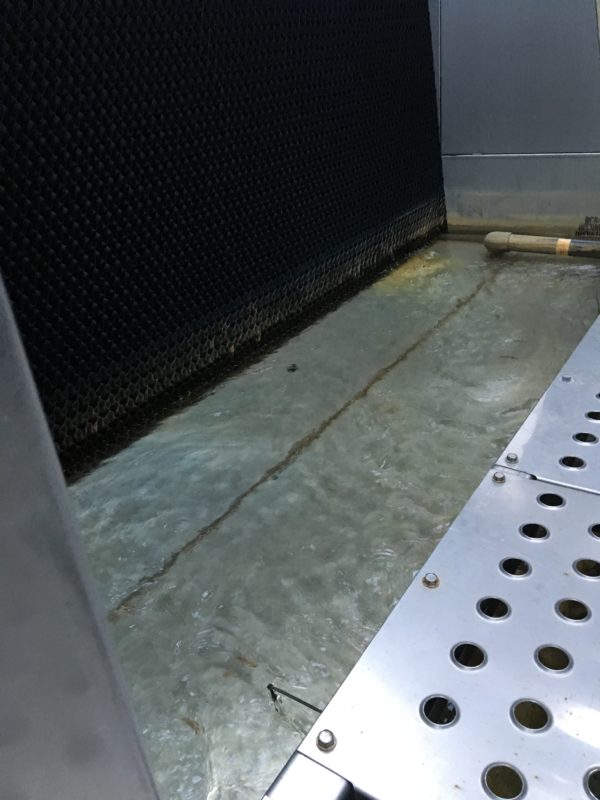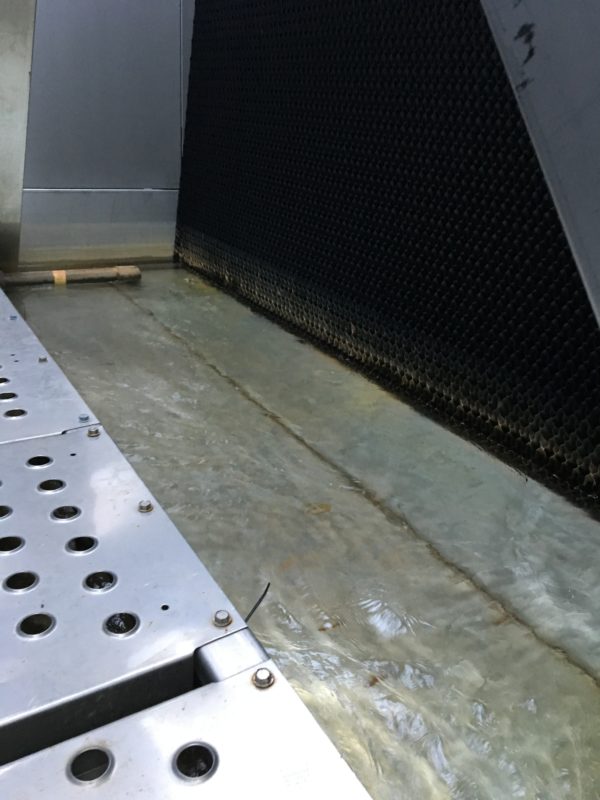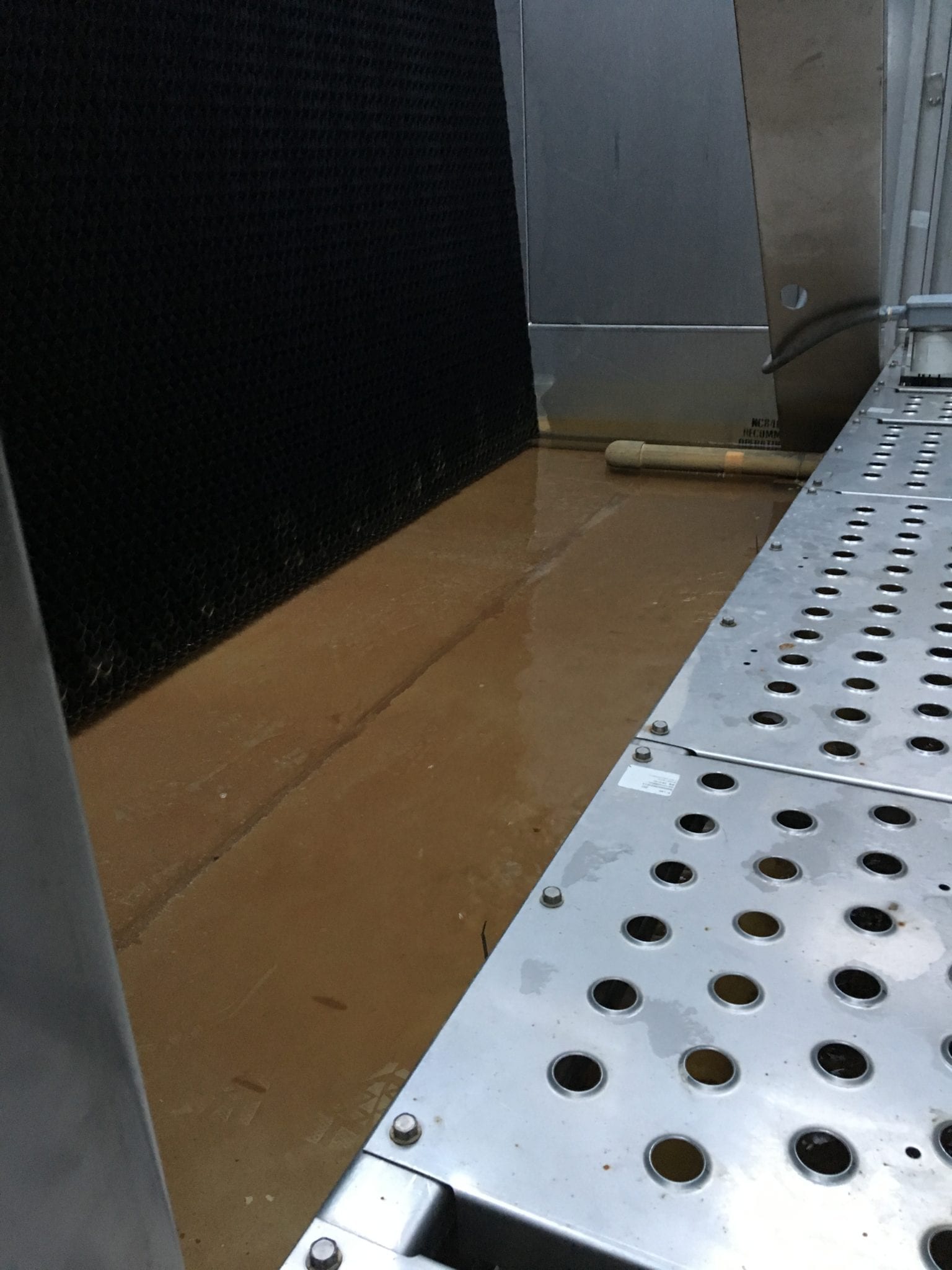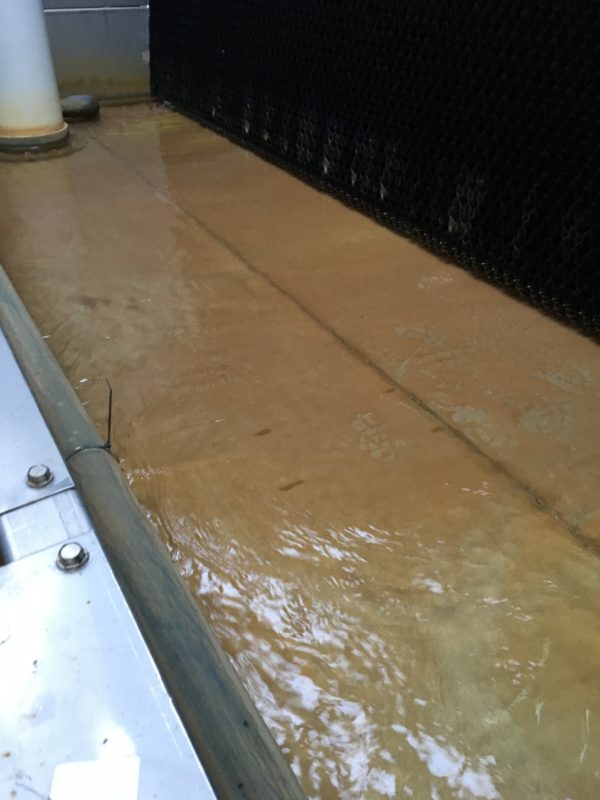Cooling towers and condenser water systems are high maintenance systems. They get dirty quickly, and if you do not keep up with the cleaning, the dirt can accumulate in your cooling tower basins and get drawn into your condenser water piping system. Once the condenser water is contaminated, it can reduce the operating efficiency and capacity of your HVAC equipment, cause an increase in pumping energy, damage sensitive components, foul heat exchangers, increase biological growth in the system, and even plug the condensers in self-contained units and chillers.
Cooling towers are not just effective at rejecting heat from the condenser water system. They are also effective outside ambient air scrubbers. As the ambient air is drawn through the cooling tower, dirt, dust, pollen, and other contaminants are scrubbed from the air by the cascading water droplets. The contaminants are deposited in the basin, where the heavier particulate can settle to the bottom and the lighter contaminants can circulate through the system.
So, how can you better maintain the cleanliness of your condenser water and optimize the efficiency of your system? The traditional approach has been to increase the frequency of cleaning the system and adjusting the water treatment. While this can be effective, it is time consuming and may have to be scheduled after normal business hours since cleaning cooling towers, heat exchangers, and condensers typically requires a shut down of the system. If the cleaning is performed by an outside vendor, increasing the frequency of the cleaning can substantially increase the annual maintenance costs.
Another approach is to clean the condenser water through the use of a separate condenser water filtration system and sweeper piping in the cooling tower basin. These systems can operate continuously, even when the condenser water system is shut down, and circulate the basin water through filters and back to the basin through the sweeper jet system. The sweeper jets keep the basin water moving to keep particulates suspended in the water for removal by the filter media.
Because these systems can add a substantial cost to the installation of a cooling tower, we are often asked if they are really worth the additional capital cost. To address that question, we have been fortunate to photograph the actual impact a condenser water filtration system has on the condenser water quality at one of our project sites.
The facility is equipped with two identical cooling towers located in the same rooftop enclosure. One tower is operating with its dedicated condenser water filtration system functioning while the other identical tower is operating while its associated condenser water filtration system is shut down for repair. In this facility, the condenser water filtration systems operate continuously. Both towers have identical water and air flow rates and operate in identical ambient conditions. You may be surprised at just how easy it is to see the effectiveness of these filtration systems. The photos below were taken during the same site visit only minutes apart:




Cooling Tower Basin With Filter System Operating




Cooling Tower Basin Without Filter System Operating
As you can see, the water in the cooling tower basin in the top two photos is clear and there is very little dirt or sediment on the bottom of the tower. However, in the bottom two photos, the water is brown and there is considerable sediment accumulation on the bottom of the basin.
The results are ”clear” - condenser water filtration systems are effective at removing particulate and keeping the condenser water clean. Clean water means better heat transfer, no loss of capacity, and no wasted energy. Also, because the water is cleaner, the time between system shutdowns and cleanings can be extended which reduces the annual maintenance budget for the system.
As the pictures demonstrate, condenser water filtration systems are a very effective method of cleaning your system. We have been recommending them for years and, our clients who have installed this type of filtration system, have been impressed with the results. If you are curious about how these systems could benefit you, please give us a call – we are always happy to help!

